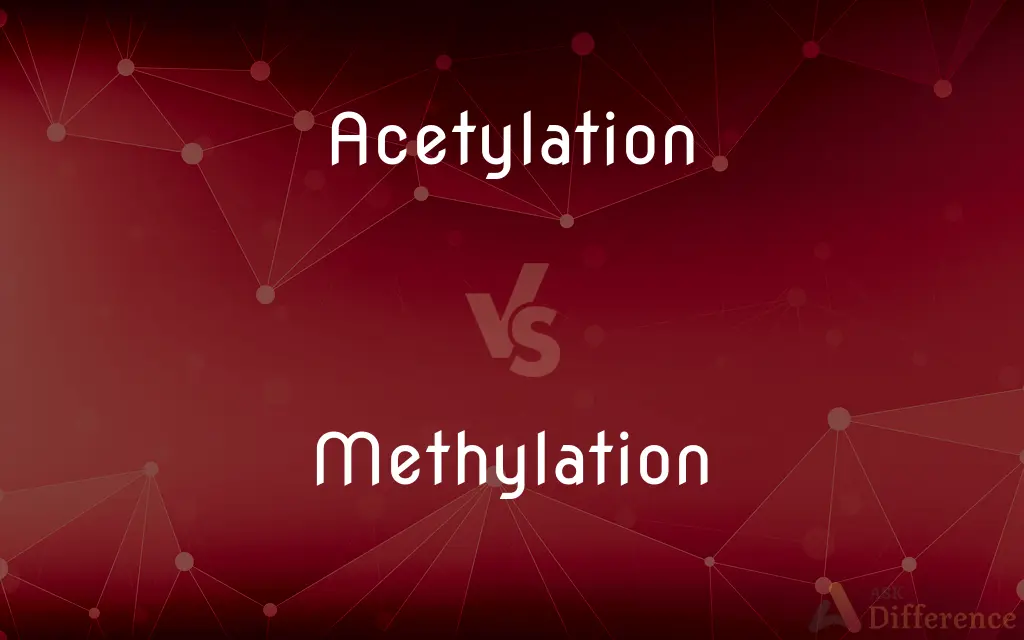Acetylation vs. Methylation — What's the Difference?

Difference Between Acetylation and Methylation
ADVERTISEMENT
Compare with Definitions
Acetylation
Acetylation (or in IUPAC nomenclature ethanoylation) is an organic esterification reaction with acetic acid. It introduces an acetyl functional group into a chemical compound.
Methylation
In the chemical sciences, methylation denotes the addition of a methyl group on a substrate, or the substitution of an atom (or group) by a methyl group. Methylation is a form of alkylation, with a methyl group replacing a hydrogen atom.
Acetylation
To bring an acetyl group into (an organic molecule).
Methylation
An alkylation process involving addition of, or substitution by, a methyl group.
Acetylation
(organic chemistry) The reaction of a substance with acetic acid or one of its derivatives; the introduction of one or more acetyl groups into a substance.
ADVERTISEMENT
Methylation
The process of treating something with methyl alcohol.
Acetylation
The process of introducing an acetyl group into a compound;
The acetylation of cyclooxygenase-2 by aspirin
Methylation
(chemistry) The addition of a methyl group to a molecule.
Methylation
(genetics) The addition of a methyl group to cytosine and adenine residues in DNA that leads to the epigenetic modification of DNA and the reduction of gene expression and protein production.
Share Your Discovery

Previous Comparison
Footwear vs. Shoe
Next Comparison
Christmas vs. Eve














































